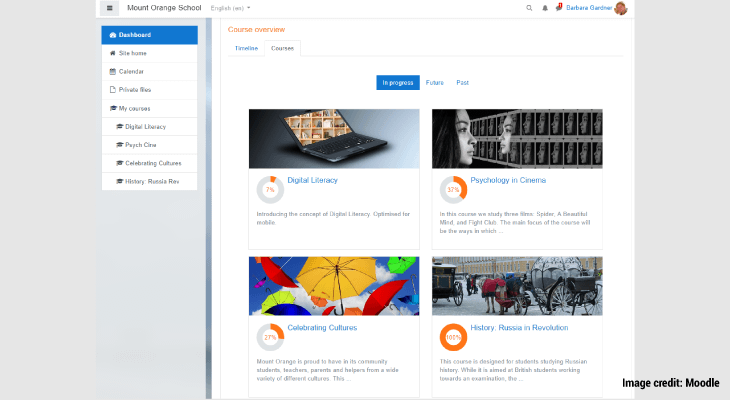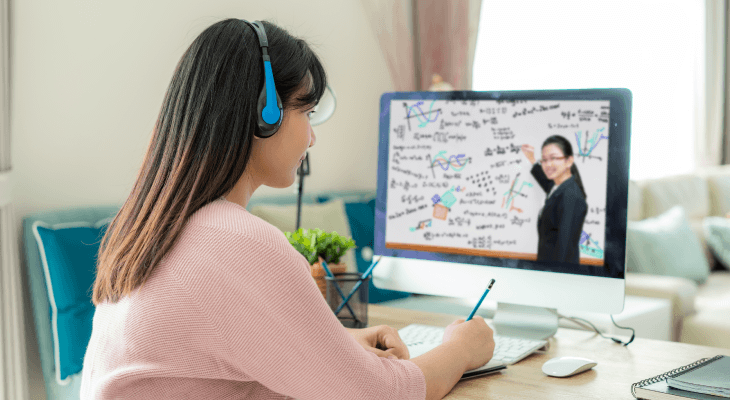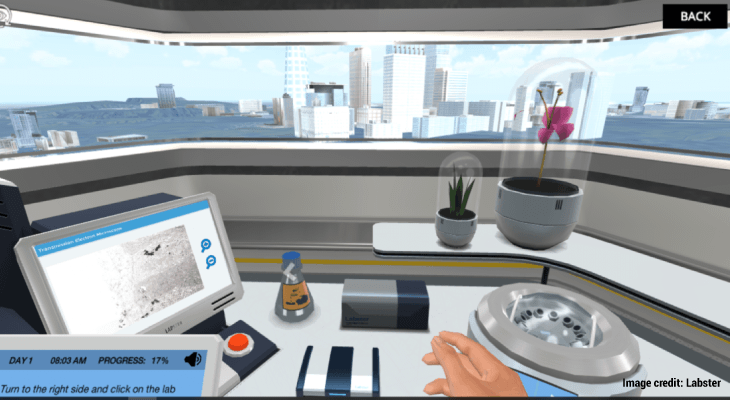What Is Online Learning Really?
Online learning is taking place at many universities but you may still be unsure how it works. Don’t worry! Here’s a rundown of what online learning really is.
Published 15 Apr 2020

With the current Covid-19 pandemic and Malaysia’s Movement Control Order in full force, many universities have been compelled to move their classes online.
But what does online learning really look like? How will you be learning without a whiteboard and the physical presence of lecturers and classmates? And what about subjects and modules that require the use of science labs?
EduAdvisor speaks to universities across Malaysia to find out how they are conducting their lessons virtually.
What is online learning?

Online learning, or sometimes referred to as e-learning, is a form of education that takes place over the internet. Various tools and techniques are used in place of physical learning methods, such as learning management systems, discussion boards, video conferencing and simulation-based laboratories.
With online learning, you will still be able to engage with lecturers, socialise with your coursemates and participate in discussions. The key difference is that you'll be doing all of this on your computer that’s connected to the internet.
How is online learning being conducted?

Across the board, universities are largely using Learning Management Systems (LMS) such as Moodle and Blackboard to deliver online lessons.
An LMS is essentially a platform that allows students to access learning materials such as their lecturer’s notes and recorded videos, take tests and quizzes, and have online discussions with their lecturers and coursemates. This allows you to conveniently keep track and retrieve all of your notes, study material and assignments in a single place.
Some LMS systems such as the Taylor’s Integrated Moodle e-Learning System (TIMeS) even include elements of gamification where digital badges are awarded when you complete the required activities.
You’ll be relieved to know that with many of the universities we interviewed, online learning isn’t something they’ve hastily put together in the past month as a response to the coronavirus outbreak. Universiti Malaya, for example, has already been using their Learning Management System since 2003, with active participation from their lecturers.

So, how are lectures being held?

To replace face-to-face lectures, universities are now conducting lectures synchronously (i.e. in real-time) and asynchronously (i.e. recorded).
Synchronous lectures are done using video conferencing tools such as Zoom, Google Hangouts, Microsoft Teams and Lifesize. This allows students to engage and interact with their lecturers and coursemates just as how they would in a face-to-face lecture.
At the same time, many universities are also encouraging the use of recorded or asynchronous lectures to allow students to access the material in their own time, especially if they have issues with internet connectivity.
Mr Lim Chee Leong, Director of e-Learning Academy from Taylor’s University says, “We recommend (lecturers) to design a hybrid learning model which includes a blend of 30% – 40% synchronous and 60% – 70% asynchronous for effective online learning. This provides a balance for the student in terms of using various online learning spaces and minimises issues with (internet) bandwidth.”
Apply for university with EduAdvisor
Secure scholarships and more when you apply to any of our 100+ partner universities.
Start nowWhat about subjects that require the use of science labs?

Resuming lectures may not be an issue but there are limitations when it comes to science-based subjects that require the use of laboratories. While some institutions are choosing to focus on theory instead and only resume lab experiments after the MCO period, some are challenging the limits by utilising virtual labs.
Taylor’s University is taking the approach of “simulating the context where possible using the online environment”. For example, it is using Labster for virtual lab simulations and clinical simulations for its medical students. At the same time, it is also utilising a host of online tools such as Lecturio and Orca Health to enhance learning.
In the same vein, Mr Bharath Vasudevan, Principal Officer Operations from Manipal University says, “We are focusing on simulation with online laboratories, especially with the Chemistry lab. Students will be able to simulate experiments and mix chemicals together.” For medical students who are in their clinical years, Melaka-Manipal Medical College is preparing patient case studies to allow them to continue with their semester without being on hospital grounds.
Are assignments and exams proceeding as usual?

Despite the many adjustments for e-learning, all written assignments are continuing as per requirements, with students now submitting their work online instead.
However, you may be wondering, “What about exams?”
Many institutions are loosening the pressure and keeping things flexible. SEGi University, for instance, have cancelled some exams and are replacing them with alternative assessments based on MQA guidelines. Meanwhile, Manipal University is employing online tests and quizzes through its LMS system. In the instance of its Business programmes, there are also open-book assessments that are designed to test a student’s understanding and ability to apply the concepts that they’ve learnt.
At Universiti Malaya, the university has adjusted its academic calendar and made arrangements for alternative assessments to take place, substituting normal sit-in exams. “Built-in assessment tools are available and being used to assess students either formatively or summatively,” says Dr Zahiruddin Fitri, Head of e-Learning, Academic Enhancement and Leadership Development (ADeC) from Universiti Malaya.
So even though you won’t be sitting in a virtual hall with your coursemates answering multiple choice questions, rest assured that you will still be graded as fairly as possible during this period.

What assistance is available for those who may be struggling with online learning?

While studying full-time from home may be a ball for some students (imagine rolling from bed to class in minutes), some may have difficulties finding their rhythm due to poor internet connectivity and dwindling motivation in the absence of face-to-face interaction.
Sensitive to these challenges, Ms Margaret Choy, Senior Manager of Teaching & Learning at UNITAR says that the institution is adopting a no-schedule approach where micro lessons of 10 to 30 minutes are recorded and shared with students together with notes and other learning materials.
At Manipal University, Mr Bharath Vasudevan asserts that if the learning of even a single student is affected in any way, the method is cancelled and other approaches will be taken to ensure that everyone gets the same effective learning experience.
Additionally, to assist students who may be experiencing issues in navigating the tools, many universities have helplines and systems to provide support and handle student enquiries. Counsellors are also on standby to assist any students who are experiencing demotivation and feelings of isolation.
We hope this provides you with some insight into what online learning is. Despite the given circumstances, universities are striving to provide you with a learning experience without compromising on the quality of education. Learning may seem different and complicated at first but once you get the hang of it, you may find yourself embracing online learning.






